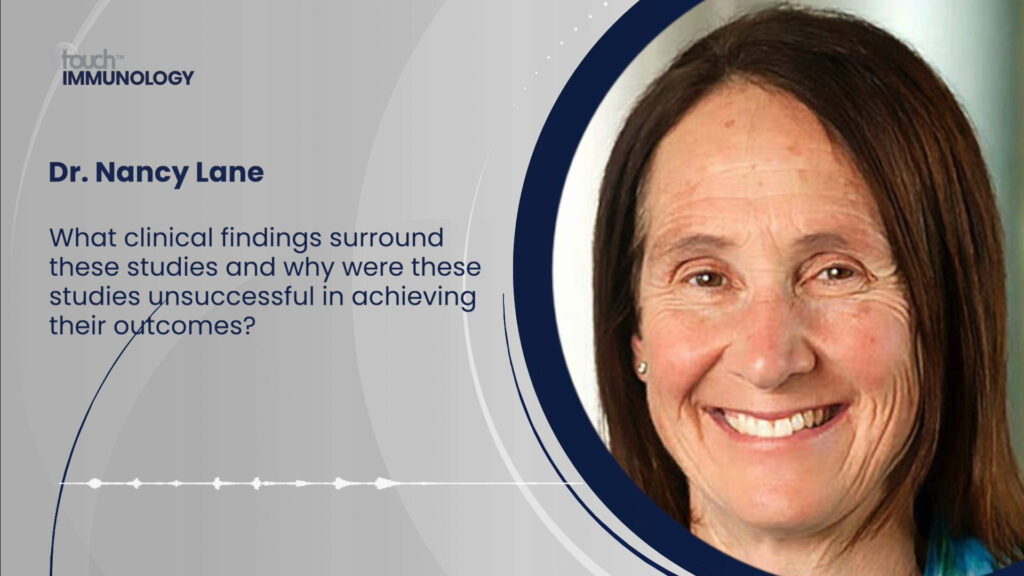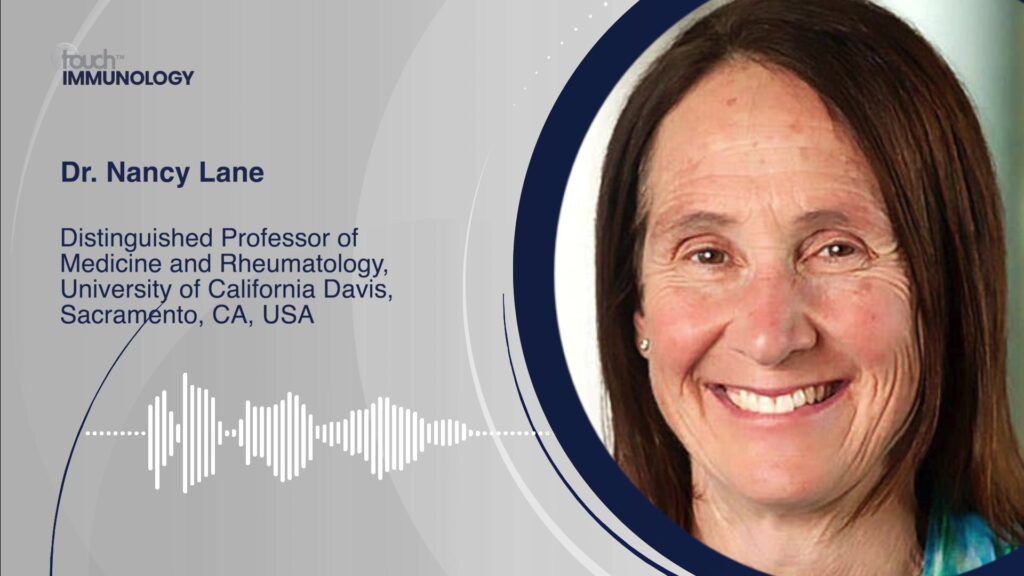A digital tool for self management in osteoporosis has recently been developed to reach older patients in their own homes using the Amazon Alexa app, to improve patient adherence and outcomes. touchIMMUNOLOGY caught up with Dr. David Scott (Deakin University, Melbourne, Australia) to discuss how eHealth will support patients in self-management, how this novel technological approach has been validated and how effective this intervention has been so far.
The abstract ‘A novel technological approach to supporting older adults to self-manage musculoskeletal conditions.‘ was presented at WCO-IOF-ESCEO 2023, 4-7 May 2023.
Questions
- What clinical data already supports digital health interventions in musculoskeletal conditions? (0:14)
- How will self-management improve adherence and outcomes in older patients with musculoskeletal conditions? (0:54)
- Please could you describe how eHealth will support patients in self-management? (1:33)
- What is the novel technological approach you are presenting and how will this be validated? (2:40)
- How effective is this intervention and what future studies are required? (4:04)
Disclosures: David Scott has nothing to disclose in relation to this video interview.
Support: Interview and filming supported by Touch Medical Media Ltd. Interview conducted by Victoria Jones.
Filmed in coverage of the 2023 WCO-IOF-ESCEO Annual Meeting.
Click here for more content on bone disorders.
Transcript
What clinical data already supports digital health interventions in musculoskeletal conditions? (0:14)
Well, the data on clinical efficacy of digital health interventions for people with musculoskeletal conditions is fairly limited, but there’s emerging evidence that when delivered effectively, digital health interventions can improve access to services and also improve health behaviours such as physical activity and diet. A recent Australian study demonstrated that exercise physiology services were equally effective for improving mobility in older adults when delivered via digital health platforms or in person in the clinic.
How will self-management improve adherence and outcomes in older patients with musculoskeletal conditions? (0:54)
So self management skills support the concept of patient centred care, which focuses on patient empowerment and self efficacy. This encourages patients to discuss health conditions with healthcare providers, and to collaborate on their management. So this can improve a patient’s disease knowledge resulting in better adherence to effective treatments, improved health behaviours, and also appropriate use of health services and taken together, these outcomes can have obviously significant health and economic benefits.
Please could you describe how eHealth will support patients in self-management? (1:33)
Digital health tools such as websites and apps are commonly used by patients to access health information and self manage their chronic conditions, but we also know that these need to be tailored for individuals and provide evidence based information. There is an opportunity I think for evidence based digital health interventions to support patient self management and empowerment by improving the access to, as well as the integration of their healthcare services, particularly for people in rural and remote areas, which is obviously an issue here in Australia. But this can obviously increase opportunities for patient practitioner communication, in addition to that, the tools can also be used not just to have that communication or provide reminders and instructions but can also provide that opportunity for ongoing education that can empower the patients to self manage their health conditions.
What is the novel technological approach you are presenting and how will this be validated? (2:40)
Well, one of the limitations of digital health tools for some populations, including older adults, is the requirement for some level of familiarity with technological devices in order to be able to interact with the self management program that we’re trying to prescribe, digital voice assistants, such as Amazon Alexa, use artificial intelligence to interpret human speech, and then can provide information via synthesized voice and audio visual content. So our technical partner had created a web software that enables health professionals to prescribe personalized content such as educational and instructional videos, as well as contextual questions, which can be then broadcast by an Amazon Alexa located in a patient’s home. And together, we’ve undertaken several studies to explore the feasibility and effectiveness of this type of intervention for self manage of chronic disease in older adults. One of these included a six month randomized controlled trial of fifty postmenopausal women with osteoporosis who we randomized to either an Amazon Alexa program providing weekly educational sessions and exercise sessions, or a control group who simply received monthly emails with osteoporosis information.
How effective is this intervention and what future studies are required? (4:04)
So the primary focus of the study was really on the feasibility of the program, and we feel this was demonstrated with our capacity to recruit, we were able to recruit all fifty participants within just one month. We had only one participant who was lost to follow-up, we saw that eighty percent of participants adhered to the educational and exercise sessions at the level we we anticipated, and we had no exercise related adverse events despite the fact that these people were exercising at home unsupervised. We also saw some improvements in health behaviours, but perhaps not surprisingly physical activity in particular, within the Amazon Alexa group. Our participants did appear to be quite well educated and already quite well engaged with their osteoporosis management. Indeed, we saw at baseline that had quite high levels of osteoporosis knowledge, but it was pleasing that we saw osteoporosis knowledge still increase within the Amazon Alexa group compared with control at follow-up. As far as adherence to osteoporosis medication this was also quite high for both groups throughout the study, but it did end up being higher for the Amazon Alexa group as well. So we think this is some evidence for the preliminary effectiveness of the intervention, but we also think that it’s important for future studies that we identify and engage with people who demonstrate poor self management of osteoporosis because we believe this is the segment of the population that’s likely to benefit most from this type of intervention.
Subtitles and transcript are autogenerated.









